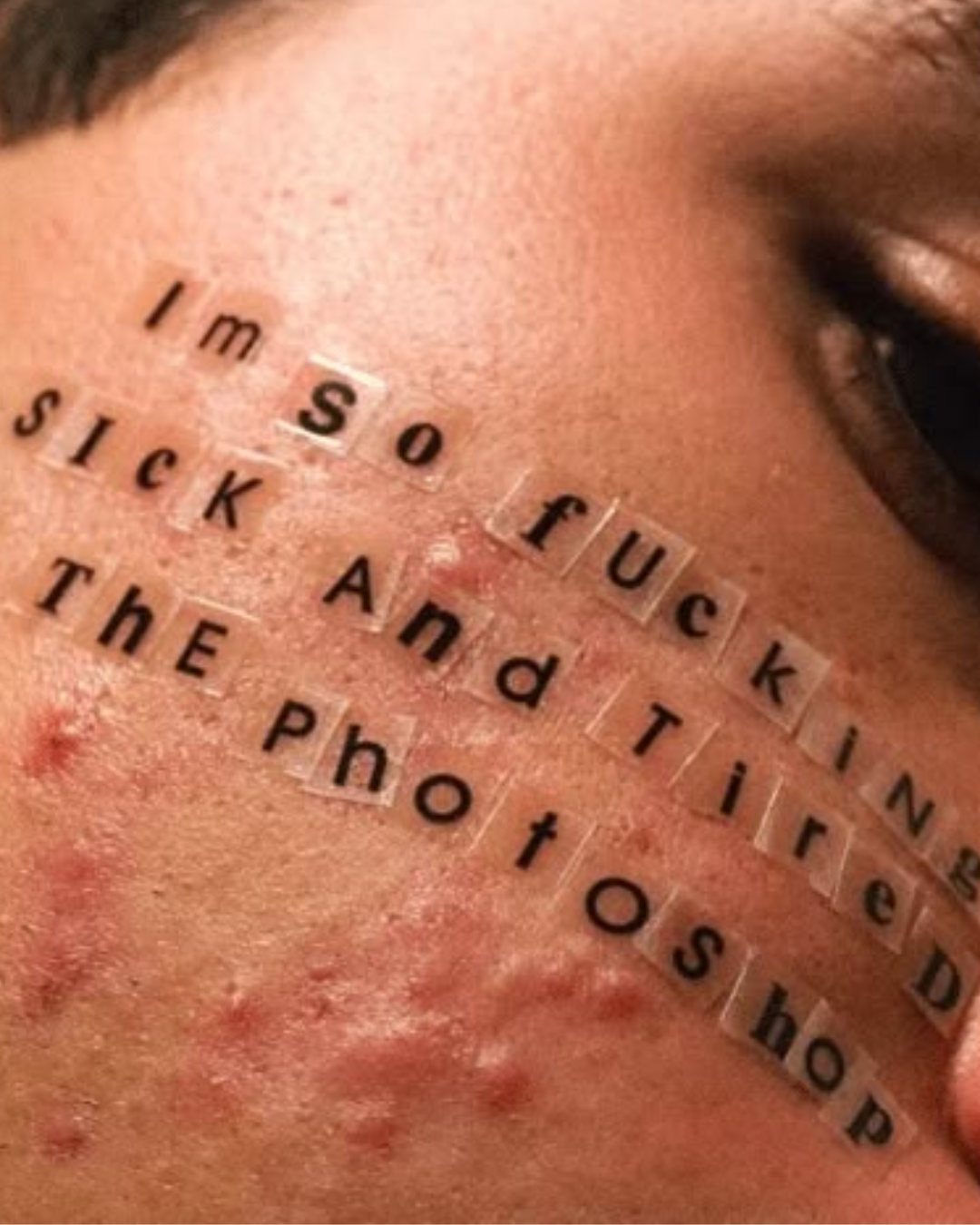
Boutons d’acné : comment les éliminer ?
Share
Acne pimples are a common skin condition affecting teenagers and adults alike. They can be a source of embarrassment, discomfort and sometimes pain. Fortunately, today there are many ways to naturally eliminate acne pimples, prevent their appearance and regain clear skin. This article presents the best strategies, remedies and treatments for getting rid of acne pimples in the long term.
Understanding the causes of acne pimples
Before exploring solutions, it's essential to understand what causes acne. Acne generally results from excess sebum, which clogs pores and encourages the proliferation of bacteria. This phenomenon is often influenced by :
-
Hormonal changes (particularly during adolescence, menstruation or pregnancy).
-
An unbalanced diet rich in sugars and fats.
-
Chronic stress.
-
Poor skin hygiene or comedogenic products.
The right steps to prevent the appearance of pimples
It is possible to act beforehand to prevent the appearance of new pimples. Here are a few simple but effective habits:
1. Cleanse your face morning and night with an acne gel
A good daily cleansing routine removes excess sebum and impurities. Use a gentle, alcohol-free product to avoid aggressing the skin.

2. Change pillowcase and towel regularly
These surfaces accumulate bacteria and sebum, which can promote acne pimples on the face. Frequent washing helps prevent contamination.
3. Use non-comedogenic make-up and skincare products
Comedogenic products clog pores. Choose certified non-comedogenic skincare products for acne-prone skin.
4. Adopt an anti-acne diet
Some studies have shown that a diet rich in vegetables, omega-3s and antioxidants, and low in fast sugars, can naturally reduce acne outbreaks.

Natural treatments for acne pimples
Many natural remedies are effective for treating acne without chemicals. Here are some of the best known and recognized:
1. Tea tree essential oil
Anti-bacterial and purifying, it quickly dries an inflamed acne pimple. Apply a drop directly to the pimple with a cotton bud, once or twice a day.
2. Aloe vera gel
Moisturizing, healing and soothing, it's ideal for relieving sensitive acne-prone skin. Apply a thin layer morning and night to clean skin.
3. Green clay masks
Green clay is highly absorbent and deeply purifying. Use it once or twice a week to unclog pores and reduce pimples.
4. Cider vinegar
A natural antiseptic, diluted in water, it can be used as a tonic to regulate the pH of acne-prone skin and limit bacterial proliferation.
Dermatological solutions for acne
When pimples are numerous, painful or persistent, a consultation with a dermatologist is recommended. Several medical options are available:
1. Benzoyl peroxide or salicylic acid creams
These active ingredients are effective in drying pimples and preventing blackheads. They are often prescribed for topical application.
2. Topical or oral antibiotics
They are used in cases of moderate to severe inflammatory acne. They combat the bacteria responsible for acne (Cutibacterium acnes).
3. The contraceptive pill to regulate hormones
For some women, the pill can be effective in reducing hormonal pimples on the chin and jawline.
4. Treatment with retinoids or isotretinoin
These powerful treatments are reserved for severe, resistant forms of acne. They are effective in eliminating severe acne over the long term, but require strict medical supervision.

Mistakes to avoid
Certain reflexes are counterproductive and can worsen the condition of the skin:
-
Touching or piercing acne pimples: this causes inflammation and can leave scars.
-
Use overly aggressive or scouring skincare products: they upset the skin's balance.
-
Multiplying different products without consistency: it's better to adopt a simple, progressive routine adapted to your type of acne.
Acne pimples and scars: what to do?
Once pimples have been removed, traces or scars sometimes remain. Here are some solutions for reducing acne scars, either naturally or medically:
1. Honey and lemon to lighten marks
Both ingredients are reputed to lighten post-acne spots. Be careful not to expose your skin to the sun after using lemon.
2. Vitamin C-based serums
Antioxidant and regenerating, vitamin C is ideal for evening out skin tone and reducing pigmentation spots caused by acne.
3. Light chemical peeling by a dermatologist
It gently exfoliates the skin and stimulates cell renewal to fade acne marks.
4. Microneedling or laser for deep scars
These techniques are effective in repairing deep acne scars. However, they require several sessions.
Recommended daily routine for acne-prone skin
Here's a simple routine for clear, pimple-free skin:
Morning:
-
Gentle cleaning with a suitable gel.
-
Purifying tonic (like lavender floral water).
-
Anti-acne serum (niacinamide, zinc, vitamin C...).
-
Light, non-comedogenic moisturizing cream.
-
Mineral sunscreen SPF 30 minimum.
Evening:
-
Careful cleansing.
-
Gentle cleaning.
-
Application of a targeted skin care product (anti-blemish gel, dermatological cream, etc.).
-
Soothing, repairing cream.
Focus: How can I get rid of acne pimples quickly before an event?
If a pimple appears the day before an important appointment, here's how to make an acne pimple disappear in 24 hours:
-
Apply ice to the pimple for 5 minutes to reduce inflammation.
-
Cleanse, then apply a drop of tea tree essential oil.
-
Use a salicylic acid or benzoyl peroxide cream.
-
Camouflage if necessary with a non-comedogenic green concealer.
When should you consult a professional?
If, despite all your efforts, you still suffer from persistent or painful acne, or if you have significant scarring, consult a dermatologist. He or she will be able to suggest a personalized treatment to effectively cure stubborn acne pimples.
Conclusion
Eliminating acne pimples requires patience, regularity and the right care. By combining a healthy lifestyle, a gentle skincare routine and targeted remedies, it's entirely possible to regain healthy, blemish-free skin. Don't hesitate to try out different approaches to find out what works best for you. And above all, remember: every skin is unique.
